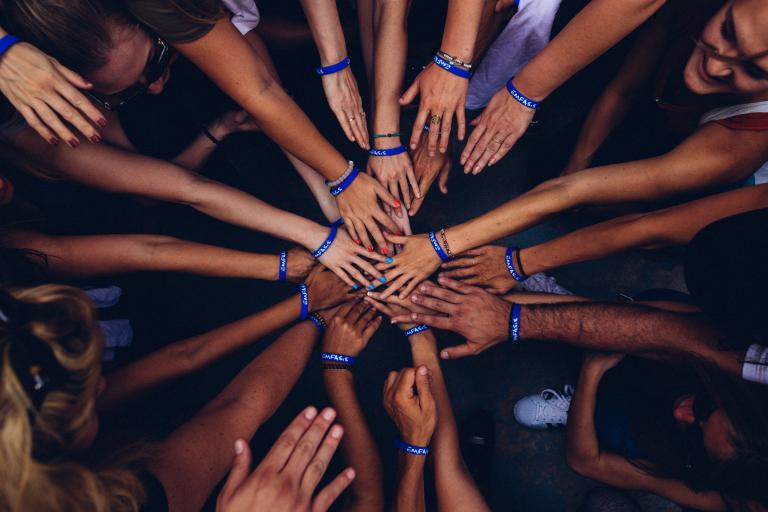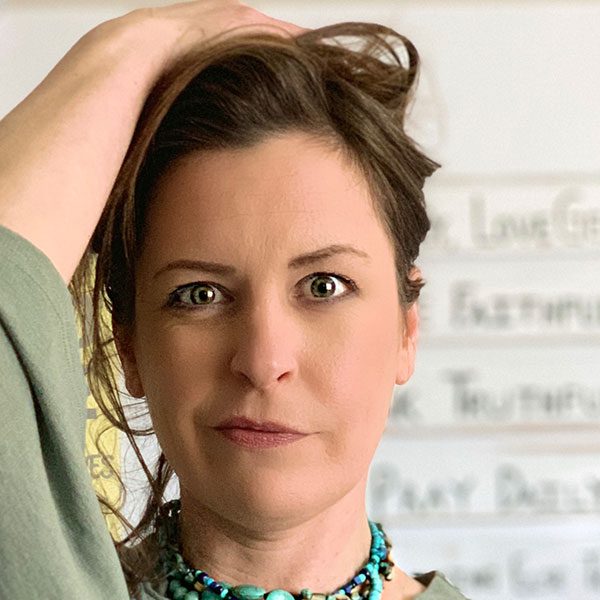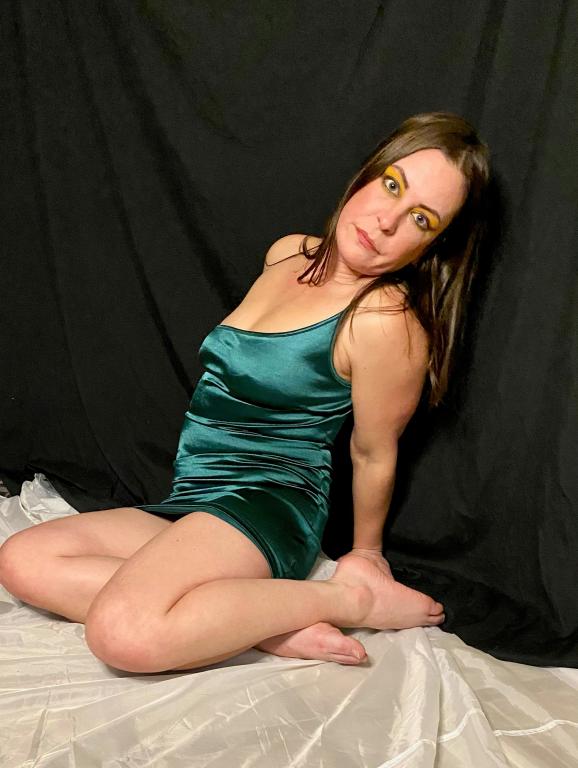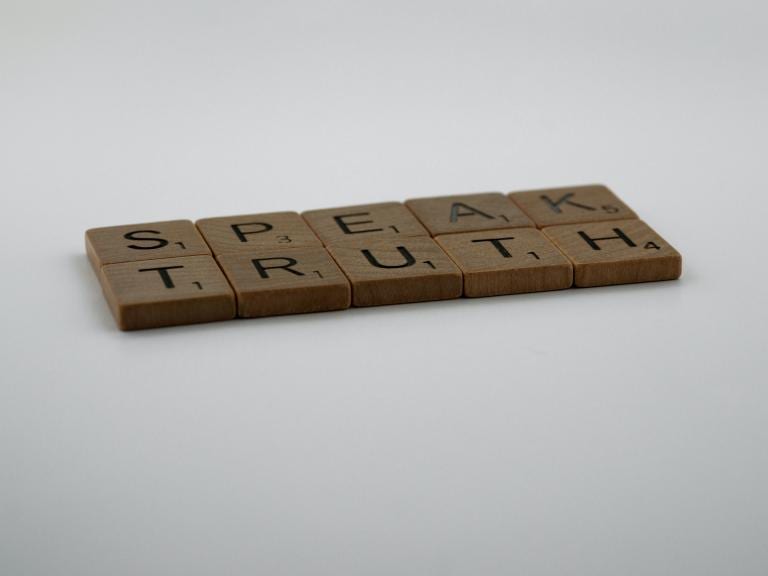
Hatred Cannot Survive Connection
If I were to admit to knowing anything, it would be this: connection is the only way to thrive. I also know that I wouldn’t be the only one to remark on such a practical phenomenon. Connection is the only way one can love the enemy. Befriending the racist is how we love the enemy. It’s essentially the way we treat racism, as though it were a disease and not just a dysfunctional personality trait.
Disconnection Leads to Disease
One of the overarching concepts that is commonly discussed on the podcast I co-host is connection. The foundation of the podcast is that the Canon continues, “inspired” is relative, and the Canon can be discovered in so much of (if not all of) what we read. Ultimately, I think the aim of literature (and all forms of art) is connection.
In the most recent recording of Book Ish, I cover the book: When the Body Says No, by Dr. Gabor Maté. The concept of the book is that disconnection from our feelings and emotions can lead to disease. Essentially, there is a stress-disease connection.
A lack of proper connection to our emotions and feelings and what signals they are sending to our body can cripple our immune system and add to the conditions that together, give birth to disease. Disconnection leads to disease.
Genetic Inheritance
Disease, as most of us know, carries genetic markers that can be passed down from mother to daughter and from father to son. Diseases, as we have been told, can be inherited.
Habits and personality traits can also be passed down. If how a person handles a simple illness like a cold is expressed in a dramatic way, that behavior itself can be impressed upon other members of the household.
However, I wonder if disease stems from disconnection, does that mean disconnection can be inherited as well?
Traumatic Inheritance
If disease can be inherited; what about trauma?
Dr. Joy Degruy is a world-renown researcher and educator whose work focuses on intersection of racism, trauma, and slavery. Dr. Degruy developed her theory on Post Traumatic Slave Syndrome (and published her findings) to address the residual generational slave trauma that impacts black communities.
Thus, resulting in M.A.P.:
- M: Multigenerational trauma together with continued oppression;
- A: Absence of opportunity to heal or access the benefits available in the society; leads to
- P: Post Traumatic Slave Syndrome.
What this means, in a most-simplistic way of reiteration, is that generations can pass down trauma. A concept that has been discussed in multitudes of publications and that has been given its proper validating credence in the psychology realm.
Passing down this trauma includes passing down behaviors, beliefs, and even fears. Degruy’s work aims to provide steps toward healing the trauma to repair the repetition of the inheritance. Essentially, disinheriting the disease of generational trauma.
Sin Inheritance
Throughout the Torah (Pentateuch) a common theme resounds: You shall inherit the sins of your father should you disobey these commandments; or you shall suffer the sins of your father as your eternal curse. Such an unfortunate inheritance was bestowed upon those who failed to follow the Law.
The inheritance of sin was seen as a disease of those times and many equated disease and illness to sin, Satan, and demonic possession. But what if we got it wrong?
What if the disease we pass on from generation to generation is of disconnection and trauma? What if that’s why Jesus’s prescription for loving the enemy is so radical? Because if we face that which we fear, we suffer from, we are oppressed by; we can heal from inside out and spread that healing on to others?
Racism is a Disease of Disconnection
Racism and bigotry aren’t germs you just pick up on the street like the flu. You’re also not born racist or bigoted. It’s an environmental influence or indoctrination. In most instances, it starts in early childhood. Others still learn it from their circle of influence later on in adolescence or early adulthood. It’s an imprint of our social experiences.
This disease of racism grows because of disconnection. People who hate African Americans, Mexicans, Palestinians, Jews, Muslims, members of the Gay community, etc.; hate them because they do not know them. They have never had any direct contact with an individual who also happens to fit under the categories referenced.
Once contact is made, once a person is known by another, that means a relationships has been established. There has been a connection. How do you hate what you are connected to?
Racism Cannot Survive Contact
In an interview on The Breakfast Club , Trevor Noah remarks on his observation: “racism doesn’t hold up against contact.” If you observe how the media handles racist acts and people we label as racists; one would be obliged to see that, in treating the racism, contact is all but eliminated except to shame and diminish the person.
When people are honest about not understanding particular things, such as cultural appropriation, or simply asking “why is blackface offensive“; they are not met with reasonable answers, but incredulous hostility, employment termination, and social execution.
What if someone was willing to meet with Megyn Kelly and have a real discussion with her, televised; so that millions of people could learn how contact, conversation, and ultimately connection, could lead to healing and understanding?
Treating Symptoms
We ban the racist, we boycott the racist, we blame the racist, block the racist, dox the racist; but we never actually combat the racism. Band-Aids on bullet holes. We simply treat the symptoms, but we never get to the root of the problem.
What happens to the racist that we take out of the line of sight? Did they change? Did they repent and transform? Did the person impacted by their racism heal? Is the person actually racist or did the person just need correcting from racist remarks? Can we separate the human from the condition- from the disease, and try to heal them?
What happens to cancer if after a diagnosis, instead of treatment, the doctor hands you an apron and says, “Here, wear this so that no one sees the cancer”?
Racism Rehab
Love transforms- yes, but it cannot begin to transform without understanding, which leads to empathy. That starts with seeing the person who used a racist remark as a person, not as the offensive term. In order for anyone to understand why what they did was offensive, clarification and explanation need to be offered. Don’t we want the racists to stop being racist?
If we don’t start there, by confronting and then converting, all we allow space for is this: more racism. We don’t demand the person actually change from within, we just demand that they no longer be allowed to have a paid platform.
This could in turn, harden the heart of that individual and encourage them not to seek a way to understand and repent, but to seek out others who are willing to praise the individual for what they said. It changes nothing and might even make it worse.
Unless you repent, you will perish. (Luke 13:5) Rehab is repentance, is it not? It’s how we change our ways. To repent means to change one’s mind. Which means, in order to change the mind of a racist, one must help them convert their way of thinking, through understanding- through love. Radical love that even loves the racist.
Radical Connection Leads to Repentance
Jesus instructed in a most radical way. Loving the neighbor was easy. Too easy, in fact! Jesus stepped it up a notch:
You have heard it was said, ‘Love your neighbor and hate your enemy.’ But I tell you, love your enemies and pray for those who persecute you, that you may be children of your Father in heaven. He causes his sun to rise on the evil and the good, and sends rain on the righteous and the unrighteous. If you love those who love you, what reward will you get?
What reward is it to unfriend the racist? People say and do things all the time that need correcting. But if we dismiss people without admonishing them to consider another perspective- to consider why what they did or said was deemed racist- then nothing is gained. Nothing is changed. Nothing is healed.
We can’t usher in a new generation of connectivity if we refuse to devote time to those who are in the most need of radical transformation. If Christian Picciolini can change and Daryl Davis can convert the hearts of hundreds, then it’s safe to assume that this racial connection is possible.
Possible, but not easy. Befriend the racist, love the racist.












